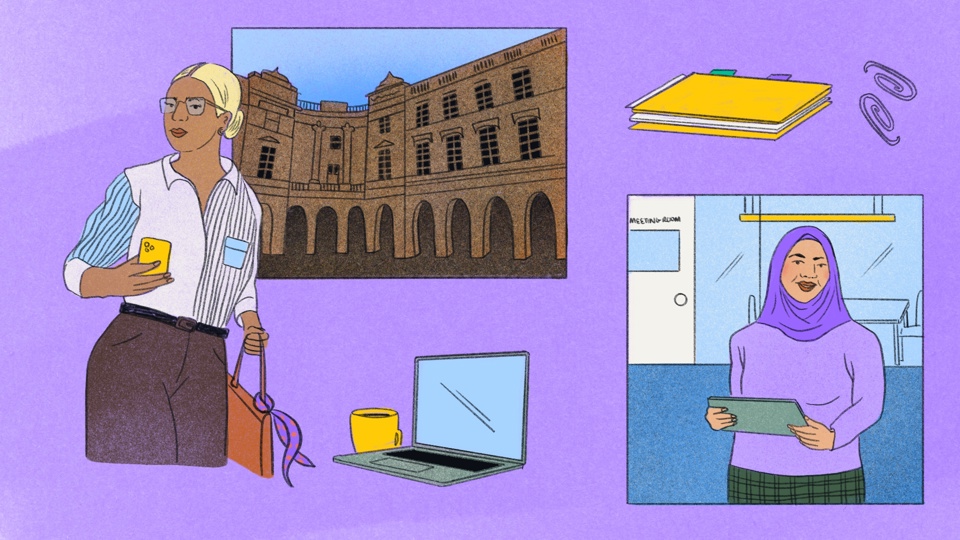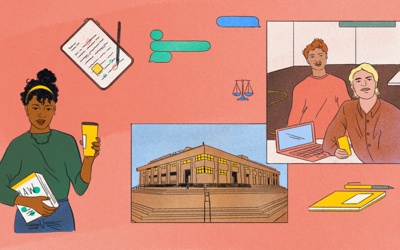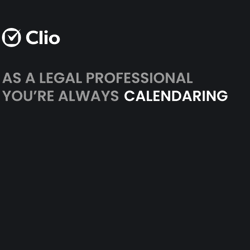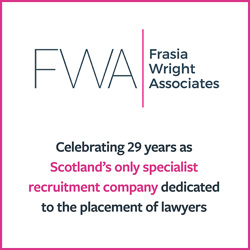Trial Run — My life as a mini-devil and why it changed my fledgling legal career

Bethany Craig offers an insight into taking part in the mini-devilling scheme with the Faculty of Advocates and how it was a pivotal moment in her career
Calling of the case: Introduction
As an aspiring solicitor with a keen interest in advocacy, I was enthused when first hearing of the mini-devilling scheme with the Faculty of Advocates during the Diploma in Professional Legal Practice (DPLP) induction at the University of Aberdeen. I was immediately drawn to the scheme, recognising it as a valuable opportunity to strengthen my legal skills, broaden my practical exposure, and contribute meaningfully within a demanding and fast-paced legal environment. Following a competitive application process, I was privileged to be selected as a mini-devil. The scheme, aimed at providing law students with first-hand experience of life as an advocate at the Bar, was a pivotal moment in my career.
This article aims to provide an overview of the Faculty of Advocates’ mini-devilling scheme, including how to apply, what the experience entails and a diary-style insight into life as a mini-devil. It will also reflect on what I learned, how the scheme shaped my professional aspirations and why I believe initiatives such as this are vital to the future of the legal profession in Scotland.
Crown evidence: What is the mini-devilling scheme?
The mini-devilling scheme is an initiative offered to students enrolled on the DPLP at one of the six accredited providers in Scotland. It provides students with the opportunity to gain practical experience by shadowing a practising advocate and acquiring a valuable insight into the Faculty. The scheme encourages individuals from all backgrounds to consider a career as an advocate, particularly those without familial or social connections to the legal profession.
Running from January to March during the second semester of the DPLP, participants shadow an advocate one day per week, in addition to attending structured training sessions and events organised by the scheme’s coordinators – Dominic Scullion, advocate; Elisabeth Roxburgh, advocate; and Sheriff Craig Findlater, coordinator emeritus.
‘Devilling’ refers to the period of training, learning and assessment that individuals must complete in order to become an advocate and be admitted to the Faculty – also known as ‘calling to the Bar’. Each individual undertaking devilling, referred to as a ‘devil’ during this period, typically has three devilmasters, each of whom is an advocate with a minimum of seven years’ experience. The devils shadow their devilmasters, who in turn provide support and guidance.
The mini-devilling scheme is so named because it is designed to give students an insight into devilling ‘proper’, offering a condensed experience. Participants in the scheme, referred to as ‘mini-devils’, are also paired with an advocate who practises in a particular area of law in which the mini-devil is interested, and is referred to as their ‘mini-devilmaster’. Over the course of the scheme, mini-devils may attend client consultations, review case papers, assist with legal drafting and attend court hearings.
While many mini-devilmasters are based in the Advocates Library in Parliament House, Edinburgh, mini-devils may accompany their mini-devilmaster across Scotland. The Faculty reimburses all reasonable travel expenses, ensuring that financial barriers do not limit participation. Opportunities for remote working are also available where appropriate.
Examination in chief: How to apply for the scheme
The application process is a competitive one and is internal within each of the six accredited providers. Each provider is allocated five places on the scheme.
The Faculty of Advocates delegates responsibility to individual universities to establish their own application procedures for participation in the scheme. Accordingly, the application process and eligibility criteria vary depending on the university.
Similarly, the allocation of academic credit for participation in the scheme varies between institutions.
The application process at the University of Aberdeen required the submission of a three-hundred-word email outlining:
- Your interest in litigation and how participation in the scheme will develop that interest.
- Two areas of law in which you have particular interest.
- Any circumstances that may have delayed or prevented you from making contacts within the legal profession.
Cross examination: The interview
At the University of Aberdeen, shortlisted applicants were subsequently invited to attend an interview conducted by two DPLP coordinators. Interview questions focused on the areas of law in which I had expressed an interest, with emphasis on recent developments and challenges within those fields.
Following a competitive application process and successful interview, I was formally notified of my selection via email and privileged to be one of only 30 students chosen to participate in the scheme.
Defence evidence: Diary of a mini-devil
29 January
I arrived at 9.30am at Parliament House, Edinburgh, where I met my mini-devilmaster, Sarah Loosemore, advocate, in Parliament Hall. I was introduced to the tradition of walking the length of the hall while discussing the upcoming case – an established method to avoid being overheard by opposing counsel or curious ears. I then observed a criminal appeal against conviction involving historic child sexual abuse.
Once court concluded, I returned to Parliament Hall for the introduction and orientation welcome event, which opened in the Laigh Hall, the space beneath Parliament Hall now used as part of the Advocates Library, with a welcome address from the scheme’s coordinators. The mini-devils were then taken on a guided tour of Parliament House and shown where the Mackenzie Building is located, as this is where our training sessions would take place.
After that, we received a talk from the scheme’s coordinators that covered the role of an advocate, our duties under GDPR and confidentiality, the role of the mini-devil and what was expected from us in our interactions with others. We were then honoured to hear from the Hon. Lord Sandison, a Senator of the College of Justice, who spoke about his career and invited questions following his address.
The mini-devils were then welcomed to a drinks reception in the Reading Room of the Advocates Library by Roddy Dunlop KC, attended by members of Faculty. The Rt Hon. Lord Carloway, then Lord President of the Court of Session and Lord Justice General of Scotland, was also in attendance. He delivered a speech on the importance of legal research and the primacy of principle over precedent, and answered questions from attendees. Notably, this appearance marked his final official engagement before retirement, which was a privilege to witness.
30 January
Ms Loosemore introduced me to John Brannigan, advocate, who invited me to attend Aberdeen High Court the following day to observe proceedings in an ongoing murder trial.
31 January
I arrived at Aberdeen High Court at 9.30am and was welcomed into the agents’ room where I met Ian Duguid KC, Mr Brannigan and the instructing agent. I introduced myself and learned more about each of their respective backgrounds before discussing the case. I spent the rest of morning observing court proceedings in the murder trial. Immediately after the court adjourned for lunch, I joined Mr Brannigan as he conducted a remote client consultation in relation to a child cruelty case. I subsequently returned to court to observe afternoon proceedings in the murder trial. Once the case adjourned for the weekend, we returned to the agents’ room to discuss case developments and plans for the following week, including the delivery of closing speeches. I was also invited to return and observe the continuation of the trial.
3 February
I attended Aberdeen High Court to observe the ongoing murder trial and, in particular, the closing speeches, which was incredibly insightful. It was fascinating to compare the styles, techniques and language used by the advocate depute and Mr Duguid KC.
10 February
I received an email from the scheme’s coordinators with further details of the first training day, which included preliminary reading materials on court etiquette, modes of address and speaking to a court.
11 February
I received an email from Mr Brannigan informing me of the outcome of the murder trial I had attended and inviting me to shadow him the following week at Aberdeen Sheriff Court in a domestic abuse trial.
17 February
Ms Loosemore emailed me with an invitation to attend an online consultation with a pain expert in relation to a medical negligence case. She also informed me of a forthcoming Sheriff Appeal Court sentence appeal that I was welcome to observe.
18 February
Mr Brannigan contacted me by telephone to discuss the forthcoming domestic abuse trial. He provided me with a summary of the case before confirming our arrangements to meet at court the following morning.
19 February
I arrived at 9am at Aberdeen Sheriff Court, where I met Mr Brannigan, the instructing agent and the client, after which I observed the domestic abuse trial throughout the morning. Once the trial adjourned for lunch, I attended a client consultation before Mr Brannigan explained the process of becoming an advocate in Scotland. He covered admission procedures, the devilling process, required examinations, associated fees, how to fund yourself during devilling and the possibility of scholarships. In the afternoon, I returned to court to observe the afternoon calling of the trial. At the conclusion of the day, I attended a further client consultation to discuss the day’s developments, the future calling of the case and the steps to be taken in the interim.
21 February
I arrived at the Mackenzie Building at 9.30am for the commencement of the first training day, which began with a presentation and talk on court etiquette, modes of address and effective courtroom communication, providing a practical summary of the reading materials. Following this, mini-devils participated in an advocacy exercise in which we adapted passages from feature films into language appropriate for courtroom use. Each participant delivered their edited passage to the group and received feedback on their performance.
Thereafter, Sheriff Findlater delivered a masterclass on cross-examination offering invaluable insights from the perspective of the Bench, and highlighting effective techniques and common pitfalls. This provided a rare opportunity to receive such guidance directly from a sitting sheriff and was a testament to the quality of the training provided by the scheme.
A series of engaging afternoon sessions with guest speakers followed.
Primarily, Neil Mackenzie KC, Keeper of the Advocates Library, spoke on the art of case analysis and note-making, touching briefly on the evolving role of artificial intelligence in legal practice.
Baroness Smith of Cluny KC, Advocate General for Scotland, spoke about her role as Advocate General, a career at the Bar and the advantages of being an advocate.
The day concluded with an open discussion featuring Shelagh McCall KC and Kenny McBrearty KC, who reflected on their respective career journeys. Each guest speaker also welcomed questions from the mini-devils.
22 February
I received an email from Ms Loosemore regarding the medical negligence case. This included an overview of the case, a summary of the case’s procedural history, relevant case papers and a link to join the scheduled consultation with a pain expert.
26 February
I spoke with Ms Loosemore by telephone to discuss details of the medical negligence case, after which I attended a remote consultation with a pain expert, the instructing agent and Ms Loosemore. Subsequently, Ms Loosemore called me to reflect on, and further discuss, the consultation.
This was a particularly valuable experience for me. While I had prior exposure to criminal law, I had not previously been involved in a medical negligence case. This was an excellent opportunity to gain insight into a different area of legal practice, and to observe the preparation and strategy involved in civil litigation. Ms Loosemore also took the time to answer all my questions, including providing a clear explanation of how the compensation amount sought in civil cases of medical negligence and personal injury is calculated.
27 February
I received an email from Ms Loosemore attaching relevant case papers for the Sheriff Appeal Court sentence appeal which would be conducted by Jonathan Deans, advocate.
28 February
I received an email from Mr Brannigan informing me that he had been instructed in a rape trial scheduled at Edinburgh High Court, which I was welcome to observe.
5 March
I arrived at Parliament House at 930am and made my way to Court 5, where the Sheriff Appeal Court was sitting. I observed three sentence appeals: one involving a road traffic offence, one under the Sexual Offences (Scotland) Act 2009, and a third relating to the Prisons (Scotland) Act 1989. This was my first time observing the Sheriff Appeal Court, and it was valuable to witness a range of cases being heard. It was particularly helpful in light of upcoming advocacy assessments scheduled at university, in which I was required to deliver a mock conviction appeal in the Sheriff Appeal Court. Observing these appeals provided me with greater clarity on structure, language and overall delivery.
Following the sitting of the Sheriff Appeal Court, I introduced myself to Mr Deans, who had appeared in court that morning. He invited me to sit with him in the Advocates Library while he made enquiries on my behalf to find another hearing I could observe. After discovering that several trials were ongoing at the High Court, he accompanied me there and enquired with court staff which trials were open to the public and suitable for observation. I spent the remainder of the afternoon observing a rape trial, during which I heard the close of the defence case followed by closing speeches.
6 March
I received an email from the scheme’s coordinators containing the case papers for the mock trial scheduled on the final day of the scheme. This included a trial guide outlining general information; the indictment; witness statements; a joint minute of agreement; a summary of the relevant law; role allocations; a programme for the day detailing key timings; and an order of procedure for each trial, complete with helpful step-by step-instructions and suggested wording for those who perhaps did not have any experience in criminal trials.
12 March
I arrived at Parliament House at 9.00am and was welcomed by Mr Brannigan in Parliament Hall before attending a remote preliminary hearing with him. We then made our way to the High Court where Mr Brannigan introduced me to the case I would be observing, provided me with the opportunity to review the case papers and discussed key aspects of the matter with me. I thereafter observed the rape trial and attended several client consultations throughout the day during adjournments.
21 March
I arrived at the Mackenzie Building at around 9.30am for the second training session, which commenced with a discussion of the mock trial scenario. This provided an opportunity to ask questions in advance of the mock trial and to ensure everyone was well prepared. We then received training on examination-in-chief from the course coordinators. This covered key areas including the purpose of examination-in-chief, effective use of language, objections, preparation techniques, structuring examination-in-chief, question formulation and anticipating cross-examination.
Following this, we participated in a practical advocacy exercise focused on examination-in-chief. Each mini-devil was required to ask a ‘witness’ questions in a mock examination-in-chief scenario, applying the techniques we had learned and receiving constructive feedback throughout.
In the afternoon, we heard from a series of guest speakers. Advocate deputes David Dickson, Margaret Barron and Adrian Stalker, and Paul Harvey, assistant principal Crown counsel, spoke about the role of Crown counsel before we had the privilege of hearing from the Rt Hon. Lady Wise, Inner House Judge and President of the Scottish Tribunals, who shared reflections on her 30 years at Parliament House.
28 March
I arrived at the Mackenzie Building at around 9.30am, ahead of the mock trials. To provide context, the mock trial involved the same scenario for all mini-devils. We were divided into five groups of six, with each group running three separate trials. Within each group, each mini-devil had the opportunity to act as either advocate depute or defence counsel in one trial and took on the role of a witness or the accused in the other two. While devils assumed the role of the clerk of court, several KCs took on the role of judges.
My first role was as advocate depute in trial one. This was a welcome challenge, as all my experience thus far had been in criminal defence. It was both exciting and insightful to act as the Crown for the first time, both in my case preparation and in court, implementing all that I had learned throughout the scheme both during training days and while observing court proceedings. This marked the first time I had the opportunity to conduct an entire trial on my own, something I had long aspired to do and a rare opportunity at this stage in my career. Fortunately, both myself and opposing counsel were well prepared, making for a smooth, engaging and enjoyable trial – particularly while donning gown and wig! I was privileged to receive detailed, individualised feedback from the acting judge, Almira Delibegović-Broome KC.
In trial two, I acted as a witness. This offered a valuable shift in perspective and enabled me to appreciate what it is like to be on the receiving end of questioning, which will undoubtedly benefit me in my future practice.
During lunch break, I had the opportunity to meet several devils who provided me with valuable insights into their experiences of devilling, their devilmasters and the Faculty exams.
In trial three, I played the role of the accused. This, again, was enlightening, providing yet another perspective on courtroom dynamics and procedure.
It was truly fascinating to observe the different approaches each mini-devil brought to the case in terms of their preparation, style of questioning, courtroom presence and advocacy skills.
Once all three trials had concluded, Ms Delibegović-Broome KC invited our group to sit together for an informal discussion about our mini-devilling experience, interests and future career plans.
The mini-devils subsequently reconvened at Parliament Hall for a group photograph with the scheme’s coordinators to mark the conclusion of the 2025 mini-devilling scheme. This was followed by a drinks reception in the Reading Room, hosted by Tony Lenehan KC, Vice-Dean of the Faculty, who presented a thoughtful, encouraging and bittersweet closing address.
As I walked through the Reading Room, crossed Parliament Hall, and exited Parliament House for the final time, I felt immense appreciation for the unforgettable opportunities I had been given, the knowledge I had gained, the inspiring people I had met and the memories I will carry forward into my legal career.
The verdict: The truth and the critical importance of initiatives such as the mini-devilling scheme
Despite having completed five years of legal education and gaining practical experience within a criminal defence firm that regularly instructs counsel, I began the mini-devilling scheme with only a limited understanding of the role of an advocate and the pathway to becoming one.
What became clear to me from the outset of the scheme was that the role of an advocate cannot be fully understood from the outside looking in. I witnessed not only the intellectual rigour required to analyse complex legal issues quickly and accurately, but also the interpersonal skills, strategic thinking and ethical judgment that underpin effective advocacy. I observed first hand the level of preparation involved before a single word is spoken in court and the quiet confidence that comes from years of honing those skills.
I had the opportunity to meet Scotland’s most distinguished legal professionals. I received training on how to address the court, participated in masterclasses on examination-in-chief and cross-examination, and gained hands-on experience preparing for and conducting a mock trial. I received feedback from judges, sheriffs and advocates – a unique opportunity that has been invaluable to my development. I reviewed case papers, attended client consultations, observed court proceedings, and received styles for legal documentation and feedback on submissions. I also left with a wealth of practical notes and insights – knowledge that is typically learned through practice and experience.
The scheme is a unique, formative opportunity that bridges the gap between academic study and professional practice. Many aspects of the law and of advocacy are not formally taught at university and can only be learned through observation and experience. It is for this reason that the mini-devilling scheme and similar initiatives are of critical importance to the future of the legal profession in Scotland. Prior to participating in the scheme, I believed I had a well-defined and conventional legal career path. However, the insight and exposure gained over the course of this 10-week programme reshaped that perspective considerably.
Whether you are considering a career at the Bar, or are not even quite sure what that means, I strongly encourage each student studying the DPLP to apply for a place on the scheme. Even if you believe you have your career path clearly mapped out, this experience might change your perspective.
Thanks
I wish to express my thanks and appreciation to the scheme’s coordinators, Dominic Scullion, Elisabeth Roxburgh and Sheriff Craig Findlater, coordinator emeritus. I am grateful to each of them for their dedication and commitment to organising and delivering this programme. I also wish to thank my mini-devilmasters, Sarah Loosemore and John Brannigan. Their kindness, generosity and willingness to include me in their work made for an unforgettable experience. They provided invaluable guidance, introduced me to countless legal professionals and offered insights that will remain with me throughout my legal career. Finally, a special thank you to Mr Brannigan who, following the conclusion of the scheme, offered me the opportunity to continue shadowing him in court – an offer I was delighted to accept.











